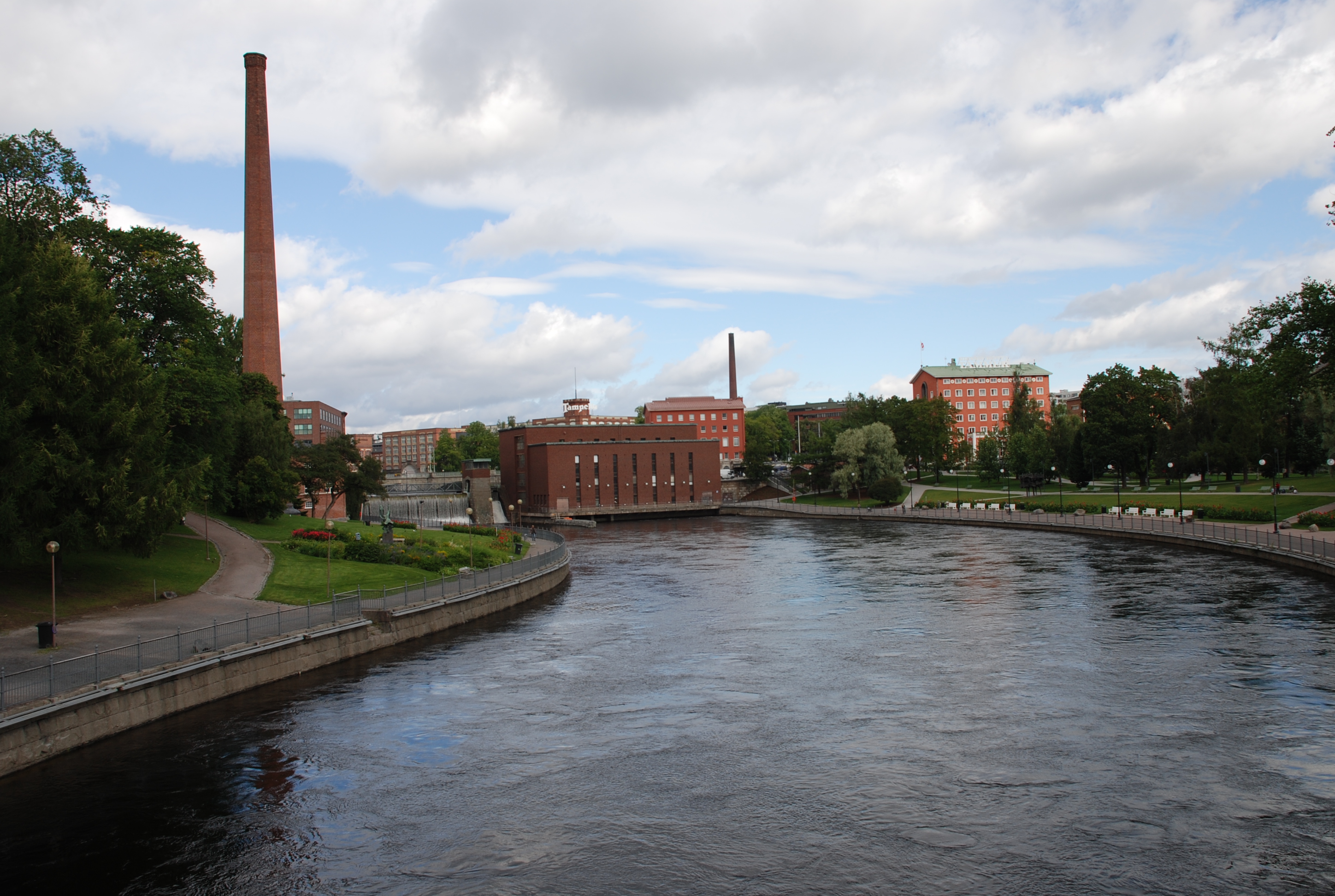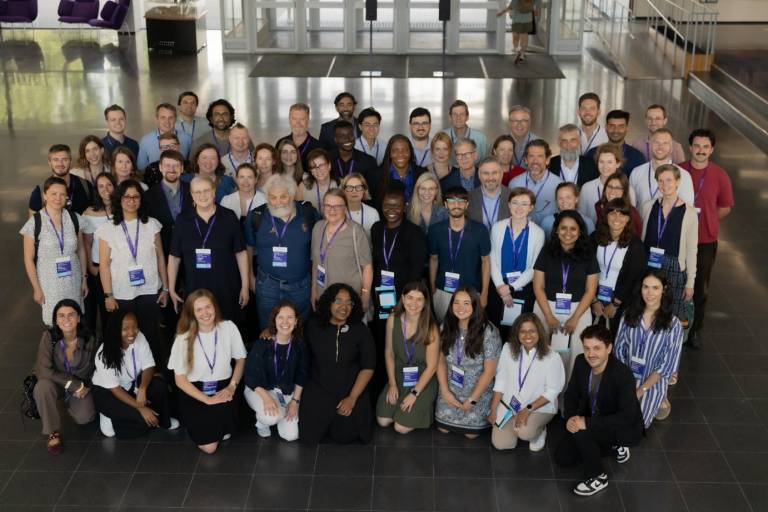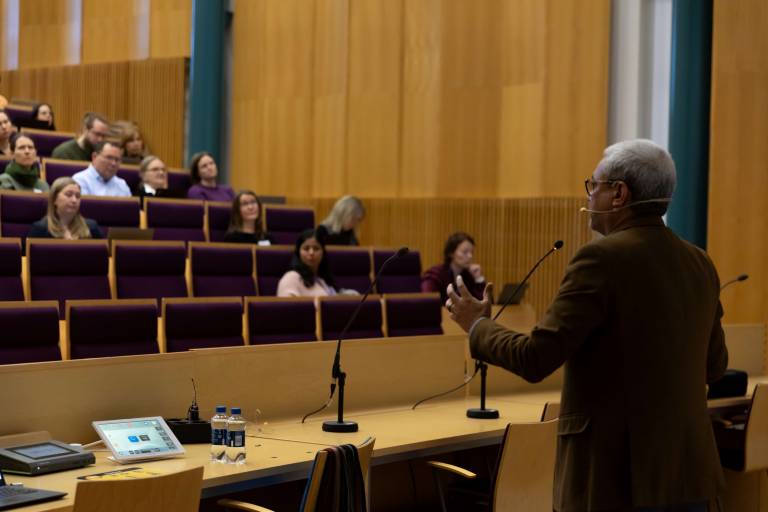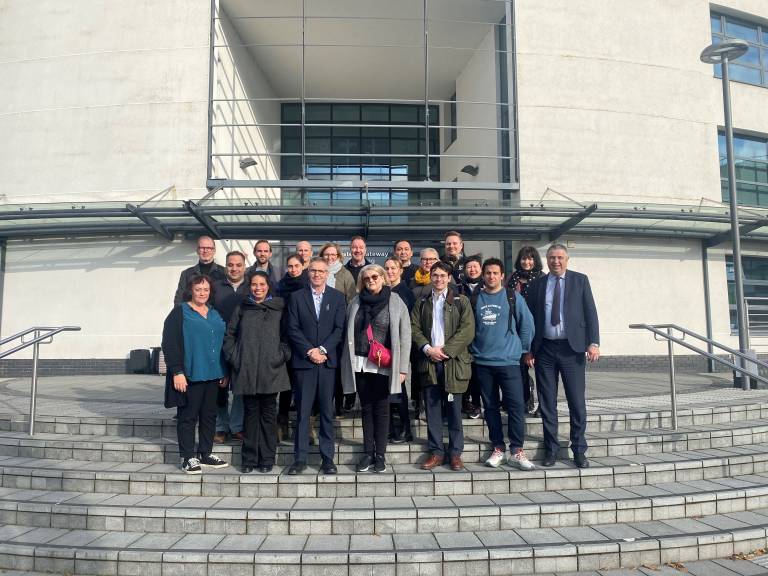Professor Kemal Kirişci gave a guest lecture about EU-Turkey relations on the Faculty of Management last week. A lot has changed since Kirişci’s last visit to Tampere 40 years ago. During this time, Kirişci has seen the end of the Cold War with its profound consequences including the rise and fall of European integration and EU-Turkey relations. But what has actually happened? What are the reasons behind these developments?
After graduating with a PhD from City University in London in 1986, Kirişci started his career in one of the first refugee study programmes in Europe at Webster University in Geneva. Thanks to this programme the Romanian Hungarians fleeing to Hungary in 1987 became the first refugee crisis he came to observe in the field. Later, as he returned to his Alma mater Boğaziçi University in Istanbul , he realised that immigration and particularly refugee movements into Turkey had received little academic interest.
“I began to realise that although in Europe, both in academic and in public opinion, Turkey was seen as an emigration country, it was also at the same time a major immigration country, initially mostly for people of Turkish or Muslim descent from the Balkans and then from the late 1990s for Europeans and people from the neighborhood . This was also accompanied by growing asylum from 1980s onwards making today the country with the largest refugee population in the world and 4th largest recipient of individual asylum seekers according to the UNHCR”, Kirişci tells.
In 1999, Turkey became a candidate country for the EU. Immigration issues were, and still are, a big interest when talking about Turkey-EU relation and integration. Through that, Kirişci’s research area became very relevant in the European eyes, and he received a Jean Monnet chair, which allowed him to concentrate on the issues of European integration and Turkey’s part in it.
Today, Turkey-EU relations are in a much more frigid state than they were just a few years ago. Kirişci sees the Arab Spring in 2011-2012 being a turning point in Turkey’s attitude toward the West.
“At that point I felt that Turkey started to lose its bearings”, he states.
According to Kirişci, the rulers of Turkey started to replace European integration agenda with a notion, which was put forward by the minister of foreign affairs Ahmet Davutoğlu: leading the Muslim world. Many labelled this policy as neo-ottomanism, but Kirişci, as well as some of his colleagues, prefer to call it pan-Islamism, with its aim to bring the Muslim world of the Middle East together on an ideological agenda rather than pragmatism. Davutoğlu called it the “grand restoration”.
“That policy played a very great role in Turkey’s foreign policy being transformed from zero problems with neighbors to zero neighbors without problems. It also explains how Turkey got so deeply implicated into the Syrian crisis. And this is where we are now.”
According to Kirişci, this has not been a successful road for Turkey, and the country is now facing a cold reality in many fronts: economical, geopolitical as well as democratic. The economic crisis is an issue the current president Recep Tayyip Erdoğan refuses to admit, and even accuses the people talking about it as people interested only in smearing the country. This does not stop Kirişci from stating his views aloud:
“Truly, Turkey’s economy on paper is growing, but then there is a different reality out there. A large number of economists are saying that this bubble may burst at some point, though it is difficult to pinpoint the exact time when.”
One explanation of the situation is that Turkey’s economy is very dependent on foreign direct investments. However, some of the policies adopted in Turkey ranging from holding foreign hostages to nationalising private property, are fast undermining the image of Turkey as a country that can be trusted and invested in. Because of these recent developments also tourism has been coming down, which is a loss of important income.
The geopolitical challenges of Turkey center on Syria and the Middle East. Some of these challenges are also affecting the West.
“But instead of facing them together, Turkey toys with the idea of aligning itself with Russia, Iran, China and the Shanghai Cooperation Organization. But personally I believe that these are not countries with which Turkey can have common strategic interests. Russia and Iran are countries, whose economy rely on exportation of oil, gas and raw materials, whereas Turkey’s economy has to export and receive investments in technology, and it is not clear if it can do it in company of these countries”, Kirişci states.
The third problem is that Turkey is internally divided, with Turkish democracy not doing too well. One of the developments aggravating this was the coup attempt in the summer of 2016. Kirişci sees problems in the way the West reacted to the attempt:
“Turkish people responded to the coup attempt by standing up for their democracy. Turkey’s strategic partners, the EU and the USA, failed to appreciate this, and also failed to show empathy at a time when Vladimir Putin within hours was expressing his empathy and support. And that has deeply hurt the Turkish society. It has also provided the president with the means to be critical of the West and even abuse it. That has fueled the politics of polarization in Turkey, as well as the anti-Western feelings.”
This brings us to a point where Turkey-EU relations are at their lowest. According to Professor Kirişci, this has not erased the degree to which the EU and Turkey need each other, and the future depends on the recognition that they would be better off working together than fighting each other. This would demand progress from both sides. Just over a week ago, Sigmar Gabriel, the Minister of Foreign Affairs of Germany, gave a speech on the Berlin Foreign Policy Forum stressing the importance of European cooperation and common interest to counter growing global challenges. What struck Kirişci was that in his speech, Gabriel did not count Turkey to be a part of the Europe, but a part of the “other”.
“Gabriel fails to recognize that having Turkey on board may be difficult and controversial, but not doing that is going to weaken the west as well as Turkey. The future will depend on whether we will see more European leaders like Gabriel, who take an exclusionary attitude towards Turkey, or more like the former Finnish president Martti Ahtisaari and other leaders who once were known for their inclusionary perspective.”
Kirişci sees that the EU-Turkey relations could improve even under the rule of Erdoğan. One has to remember that despite the recent developments, it was under Erdoğan’s rule that Turkey-EU relations reached their peak.
“Although he comes across as very ideological, anti-Western, polarizing, undemocratic, nationalist and Islamist, all these characteristics that impact the West adversely, he is also very pragmatic. I think that in a private conversation, I am suspecting – and I may be wrong – that he would recognize that Turkey stands a better chance in returning back to where it was ten years ago, by co-operating with the West”, Kirişci speculates.
At the start of his career, Kirişci was able to follow the end of the Cold War, the integration of Europe, the warming of the relations between Turkey and the West and the tearing down of walls, both physical and ideological.
“And here I am, at the end of my career, and it feels like a full circle! We are coming back to where we were in 60’s and 70’s, people putting up walls and borders, and populism and right-wing rising in a manner I thought would never happen again. I feel that I have been fortunate in my career to see this all, but at the same time I also feel sad and concerned for my children and young people in general.”
Kemal Kirişci’s new book around this subject called “Turkey and the West: Faultlines in a Troubled Alliance” has just been published by the Brookings Institution Press.
What is Vaikuttaja? To find out, read the welcoming post of our blog by our dean Antti Lönnqvist.





Kommentit